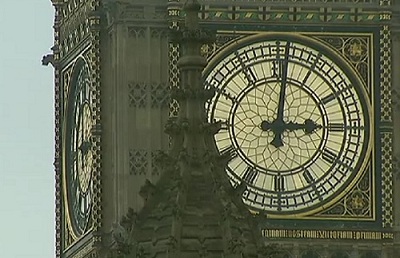What odds an early election?

How likely is brinkmanship to go wrong?
The continuing struggle within the coalition over the fate or ultimate nature of the NHS reforms is as good an indicator as is necessary that the May elections and AV referendum really did mark a watershed in the Coalition’s history. The Lib Dems, as Clegg promised, have been much more vocal and active in pressing their case, even where – as with the NHS bill – it reverses their previous stance.
This approach certainly could bring about benefits but also has its downsides. One is that it will make it more difficult to get their own preferred legislation enacted where it’s not covered by the Coalition Agreement. Another is that appearing to act like an opposition while in government runs the risk of confusing the public. The most acute risk though is that of a miscalculation, where some issue becomes so divisive that one side or the other feels goaded or threatened into withdrawing from the government.
That’s not as unlikely as it sounds. The obvious political solution to the NHS clash is to make a few amendments softening the most contentious points, cut a quid pro quo on something else and push on. However, rather than moving towards compromise and consensus, both sides appear to be hardening in their position, almost instinctively responding to the other.
It shouldn’t be enough to bring down the government and of itself, it won’t be. The challenge only becomes a crisis if hotheads on either side start throwing allegations of untrustworthiness or betrayal around, from which compromise then appears to vindicate those charges.
It’s worth remembering what kicked all this off though: a members’ revolt at a Spring Conference. These are events that are not wholly within the control of the parties’ leaderships, or even their caucus of MPs.
What makes all this timely is that while the NHS fuss has been grabbing the spotlight, the Fixed Term Parliaments Bill has completed its progress through the Lords. With only the amendments to sort out, that should reach the Statute Book shortly. Once it’s there, calling an early election gets much more difficult and much messier.
It won’t do any side any favours to go to the brink. At a minimum, it would erode trust far further within the coalition parties with at least one side coming out with a reputation badly damaged; at worst, it may prove impossible to pull back with all that implies. Even Labour may not welcome an early election, with a leadership still bedding in and policy reviews barely begun.
The best odds available for an election this year are 11/2 with Bet365, or 10/1 with Betfair on a moderately liquid market. My guess at the odds would be between those two. One issue is the timetable: even a crisis now would push an election date back to late June. Within a fortnight, we’d be into the Summer holidays closing the door until Autumn, by which time the Fixed Term Parliaments Bill will be an Act. That said, the main conferences in September and October could be very lively. If they feed off or into some other friction around at the time, it’s just possible that events could get out of control.